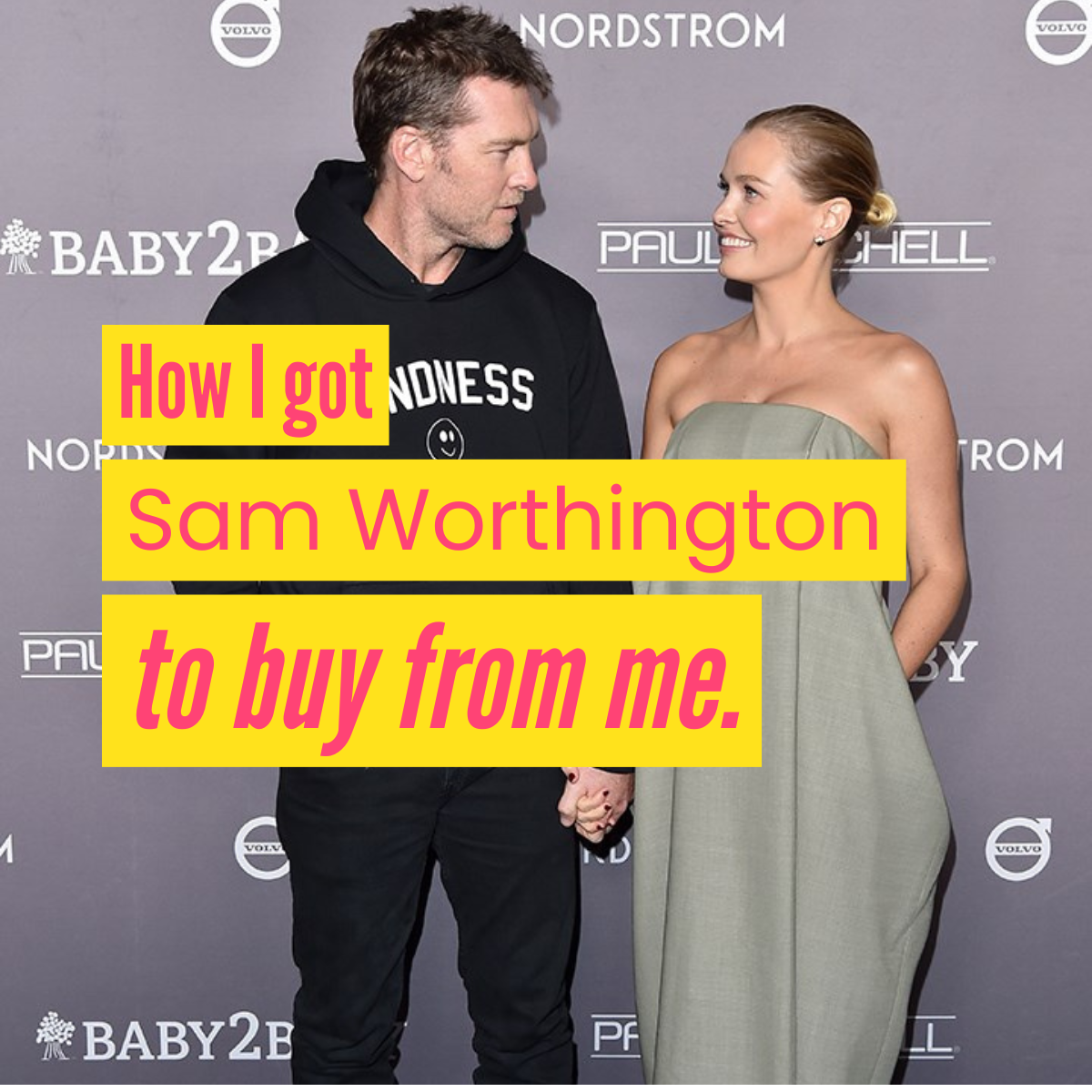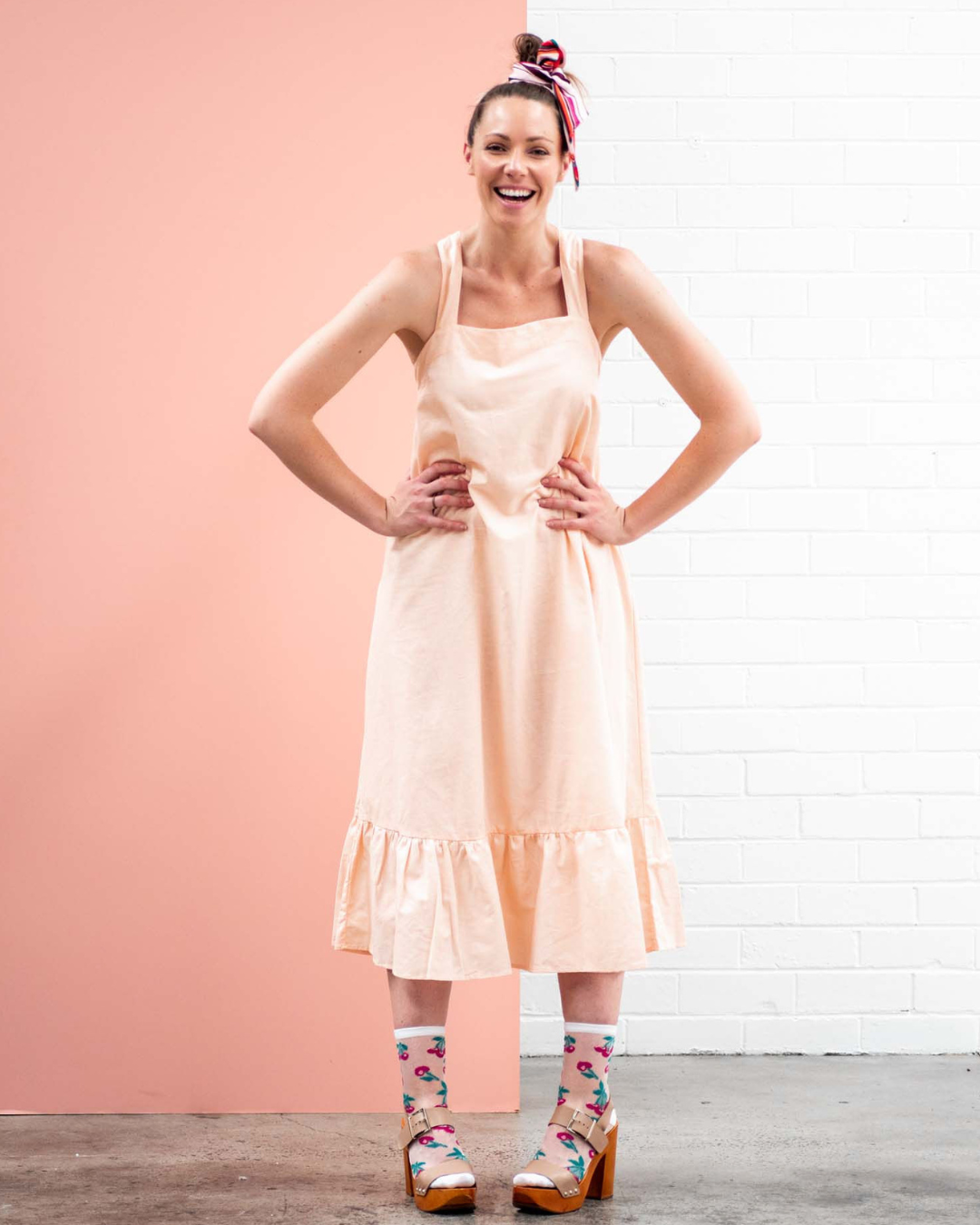I’m an optimist. When something doesn’t sit right with me, I try to find a way to fix it, and I’m certain that if anyone can fix it, it’s me. The fashion industry, e-waste, plastic, mining… I get behind it all. I want to sit back when I’m 90 and know that I spent my life doing good things and I want to leave the world in a better state than I found it.
My relationship with fashion is therefor a contradiction, because fashion is soon to usurp oil as the most polluting industry in the world. It’s also an industry rife with slave labour and human rights issues, but this is exactly what I’ve dedicated my working life to changing. My optimism and my passion for equality are the driving forces behind The Fashion Advocate and it's just not in my DNA to sit back and accept the status quo when I know we can do better as an industry.
It’s a big dream – fixing the fashion industry – but I believe we can do it. What if all the clothes we bought were sustainable? What if everything we wore was made ethically? If everyone in the world bought ethical and sustainable clothing and the fashion industry was circular and fair, we wouldn’t be having these kinds of conversations, but how do we change the behaviour of nearly eight billion people? How do we convince the entire world that all those $10 shirts are driving women into poverty and starvation? How do we tell Amancio Ortega – who is the sixth richest man in the world – to change Zara’s model and start considering the impact of the 840 million garments he's responsible for manufacturing every single year?
It seems like an impossible problem to solve, but once upon a time, so was air travel.
So were we do start? Anywhere. We act. We read. We sign petitions. We advocate for better. We start conversations. We educate our friends about their shopping habits. We ask questions. We increase our standards. We treasure what we buy. We buy less. We demand that companies pay a living wage. We repair our clothes instead of throwing them away. We come together and we create collective change.
It sounds easy, but it’s far from it, and Clare Press is sceptical that we can solve the fashion industry’s issues too. She’s not alone; it’s rare that I’ll meet someone who thinks my vision for the fashion industry is realistic, and I can understand both sides of the argument. One of the biggest challenges is feeding the millions of garment workers who would starve if we just switched off fast fashion overnight, and to solve that issue... Well, that's what we're constantly panelling and debating.
It was the topic of discussion at last night’s panel with Clare Press (author of Wardrobe Crisis, podcaster, former Sustainability Editor of Vogue, all round incredible woman), Ally Turner (Advocacy Coordinator of the Ethical Fashion Team at Baptist World Aid Australia) and Andrew Miller (an ethically-minded stand up human being).
While we didn’t come up with an immediate solution, we did inspire a handful of advocates who are new to the ethical fashion conversation, and we did agree on one thing: fashion needs to change.
You can watch the full recording here or download the BWA Fashion Report here. You can also brush up on your industry knowledge through Clare’s podcast (in particular this episode which is sure to light a fire in your belly), or read more about the ethical labels who are using their businesses to create positive change here.
It you're overwhelmed by it all and don’t know where to start, you can also read my three step theory here. It’s an ‘easy’ foray into ethical fashion.
The Fashion Advocate x





